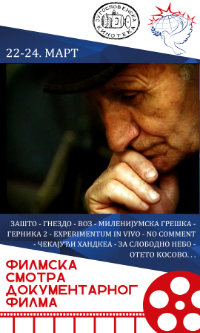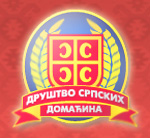Rewiev of book "1244 Key to peace in Europe" published in new edition "Current Concerns - Zeit Fragen"
| Activities - Comments |
1244 - A KEY TO PEACE IN EUROPE 6- Defending Serbia’s Right to the Province of Kosovo and Metohija
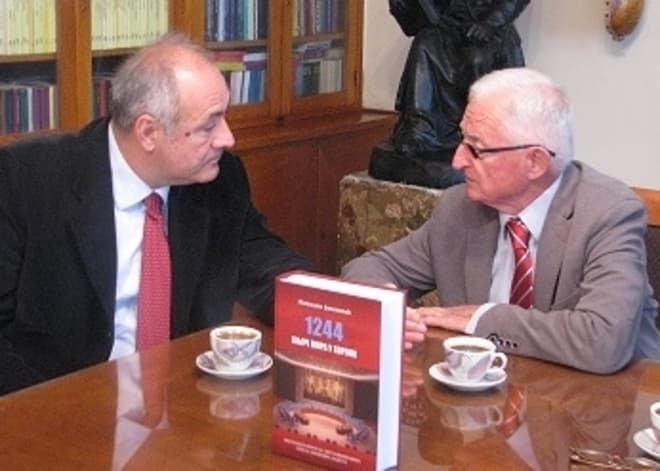
The oldest Serbian Publishing House - Serbian Literary Cooperative – has recently promoted the book “1244 – A Key to Peace in Europe”, authored by Živadin Jovanović, a former foreign minister of Yugoslavia (1998–2000). Other promotions which followed in Belgrade, Novi Sad, Subotica, and other places in Serbia, have aroused attention and interest for the book among scholars of international relations, security, analysts of contemporary geostrategic tendencies, of the roll of international public law, and of stability and cooperation in the Balkans, and Europe.
The book is a collection of the author’s articles, interviews and public speeches related to the Autonomous Serbian Province of Kosovo and Metohija which have been published of the past 20 years (from 1997 through September 2018).
This includes a number of interviews with renown international medias such as: Le Mond, Frankfurter Allgemeine Zeitung, L Soire, Pravo, ABC, Nezavisimaya Gazeta, Al Ahram, Elite, as well as radio and TV networks, such as BBC, CNN, CBS, Chinese Central TV, Al Jazzera and others.
The book (890 pages) comprises 5 Chapters: The Time of Terrorism, The Time of Aggression, The Time of Illusions, The Time of Waking up, and The Documents. The reviewers are Academician Vlado Strugar, Prof. Dr. Milo Lompar, and Prof. Čedomir Štrbac and the editors Ambassador (retd) Dragomir Vučićević and the writer Dragan Lakićević. The publishers: The Belgrade Forum for a World of Equals, and the Serbian Literary Cooperative.
According to Professor Milo Lompar the book reflects continuity of the author’s views on statehood and national interests of Serbia and the Serbian people, readily recognizable in his decades-long career in diplomacy and in his public engagements up to the present days. Author’s continuous advocacy for the full respect of the basic International Law Principles and UN Security Council Resolution 1244 in resolving the problem of the Serbian Province of Kosovo and Metohija reflects both – author’s understanding of the long-term and current importance of Kosovo and Metohija, not only for Serbia and the Serbian people, but also for the peace and stability in the Balkans and Europe. With over 1.300 Serbian medieval monuments, headquarters of the Serbian Orthodox Church Patriarchy - Kosovo and Metohija is deeply interwoven in the state, national, cultural and religious identity – considers professor Lompar. He concluded that the book of Mr. Živadin Jovanović reaffirms the statehood roots and tradition of the Serbian nation re-established in XIX century as well as the right to equality and self governance of all citizens and national communities living in the Provence regardless of their nationality or religion. He particularly praised high documentary value of the book as its special feature.
Ambassador Dragomir Vučićević singls out the need for Serbia to dedicate much more reflection on herself and her long-term interests, and to a lesser extent on the current expectations by the international stakeholders, since the latter, in their positioning vis-à-vis Serbia, are guided solely by their own geopolitical interests. Serbia should adhere to the fundamental principles of the international law and the UN SC resolutions, regardless of who may or may not find it suitable, and develop balanced relations with all key international actors, particularly with proven, long term friends who did not partake in 1999 NATO aggression and have not recognized the ensuing illegal, unilateral secession. Vučićević also highlights the author’s thesis principled that Serbia needs the European Union only to the extent the European Union needs Serbia, and that EU membership is a legitimate goal insofar it is not conditioned by surrendering her sovereignty and territorial integrity. A just and durable solution for Kosovo and Metohija is only possible on the basis of observing the principles enshrined in the UN Charter, the OSCE Final Act (1975), UNSC Resolution 1244 (1999) and the Constitution of Serbia. Attempts to impose on Serbia solutions which legalize violations of the basic principles of International Law and of European Security and Cooperation as well as UN SC resolutions would only pave the way to the spreading of instability and the build-up of conflict potential in the Balkans and in Europe – warns Vučićević.
Renown Serbian historian, member of Serbian academy of science and art Vlado Strugar, underlines that this book is a unique thesauri of documents and analyses to be research by historian and all others researches devoted to establishing the truth about Kosovo and Metohija, the most important national and state issue of Serbia, as well as about attempts of certain Western powers to exploit this issues for expansion of their hegemony toward East.
General (retd) and professor Radovan Radinovic considers that the author refuted chief argument of the West, that Kosovo and Metohija was lost in the war, and that Serbia was defeat and thus left without right to claim the end of occupation and reinstitutions of own constitutional order.
Western geopolitics are well aware that 1999 NATO aggression was not aimed at protecting human rights of the Albanian national minority. Real objectives have been and remain up to present times, geopolitical expansion toward East, instate full control and lasting presents of USA troops in the Central Balkans. “Kosovo and Metohija is not an issue of human rights, but of the Western geopolitics” – sais general Radinovic and concludes: “This book helps better understanding recent history. Those who govern history are the same who govern present and the future”.
The most renown Serbian islamologist, Serbian ambassador ta UNSEKO, professor Darko Tanaskovic considers that the book „1224 key of peace in Europe“is precious well of documents, facts, and unavoidable testimonies of the dramatics history of the Balkans and Europe, at the cross road of 20th and 21st centuries. He underlines that the author is witness and direct participants of crucial affords to resolve all the problems in Kosovo and Metohija, by peaceful means, but also of the forces whose geopolitical aims have been quite different. „All those who study today, or who will be studying UNSC Resolution 1244 in the future, will find this book very useful, resourceful and even guiding toward better understanding of processes in the Balkans and great powers relations“ – considers professor Tanaskovic.
The author recalled that UN SC Resolution 1244 (1999) was the outcome of extremely difficult two-month negotiations under Russian mediation, while the NATO aggression was unfolding. According to him, it is quite improbable that present day narrow and closed Brussels’ negotiations format would produce balanced, just, and sustainable solution to Kosovo and Metohija problem. If the West was unable to end the NATO War in 1999 without the key role of Russia (Victor Chernomirdin) how realistic is now, 20 years after, to resolve the issue of the status of Kosovo and Metohija being the main consequence of that war, keeping Russia outside of the whole process! Is Russia of Putin today less relevant, less capacitated for peaceful solution of international problems, including problem of Kosovo and Metohija?! Or to put it differently, is the West stronger, dominant player in the global and European arena today than it was in 1999!? Jovanovic added that UN SC Resolution 1244 (1999) comprises the positions and interests of all key actors in European and global relations, Russia and China included. Taking that this was true back in 1999 -- at the peak of dominance of the unipolar world order – it follows that today, under the backdrop of multipolar global relations, this is no less than imperative. A bid to resolve it within an EU-only format reveals intention to exclude Russia and China and to resort to blackmailing in order to impose geopolitical interests of the West, namely, the EU and NATO. Acceptance of such attempts would go against the global trends, and would result in further destabilization of relations in the Balkans and in Europe rather than in introducing a balanced and sustainable solution.
Jovanović recalled of the coming 80th anniversary of the Munich Agreement on Sudetenland ostensibly to ‘protect’ the rights of the German national minority and ‘save’ the peace in Europe. We all know who took part in, and who was intentionally excluded from, this ‘agreeing’ and what was the outcome of this ‘comprehensive legally binding agreement’ of 30 September 1938 – warned Jovanović.
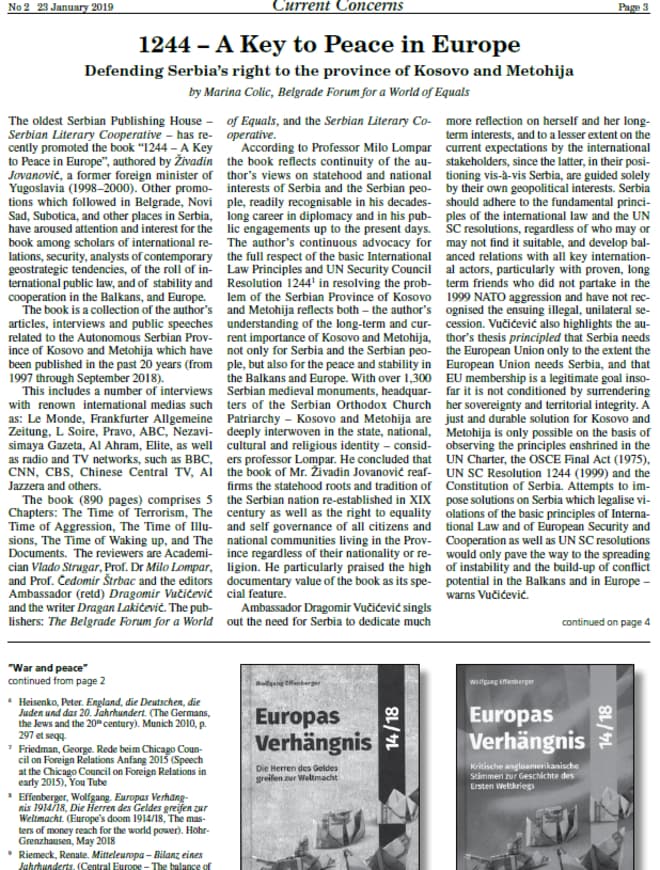
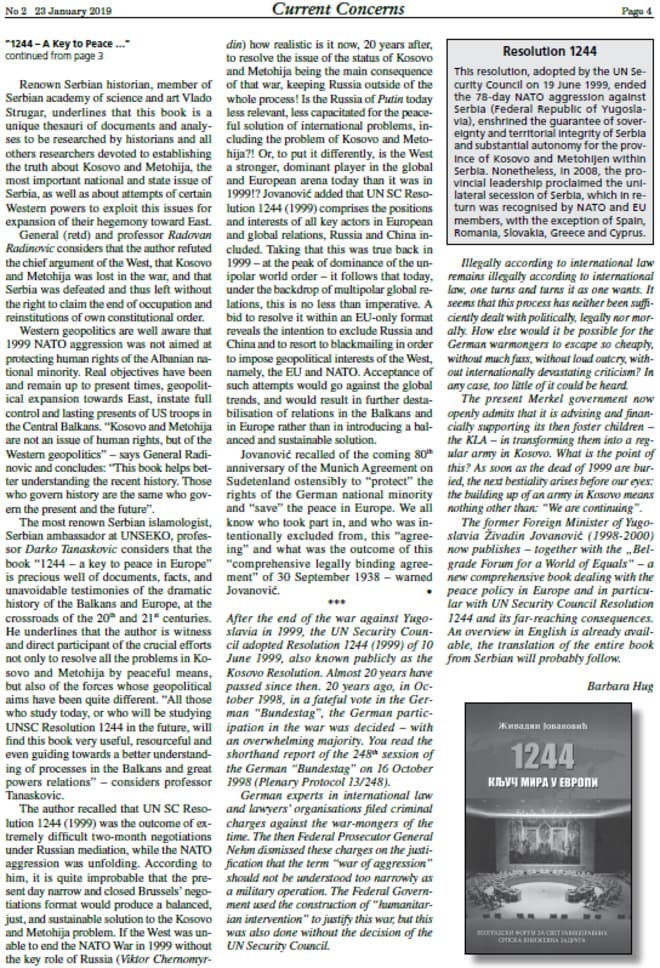
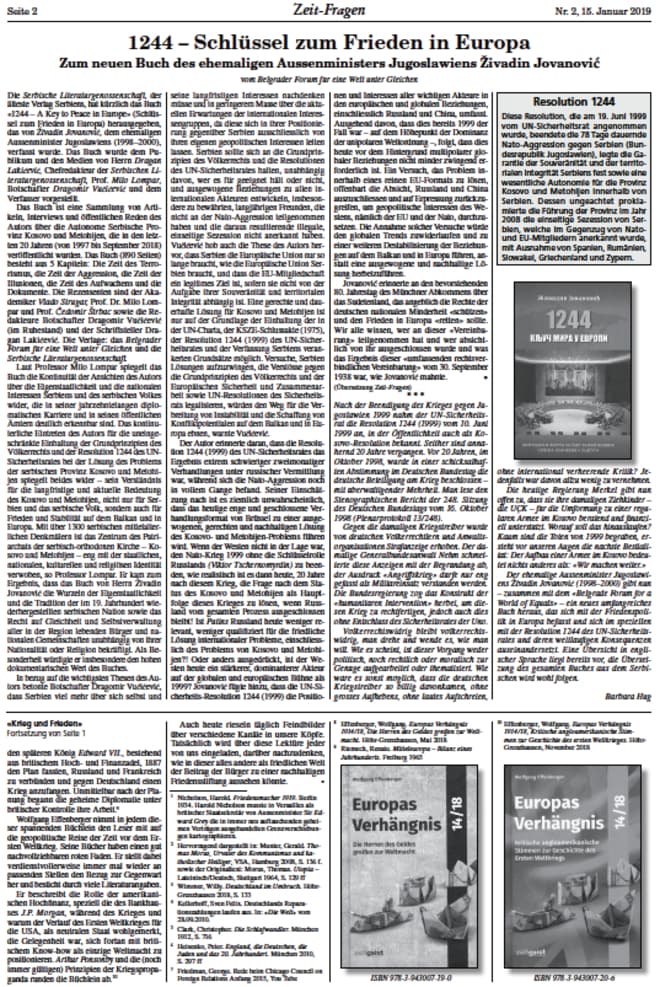
Marina Colic
| < Prev | Next > |
|---|
| Overstatement from Davos 2017. |
Liberal corporative capitalism, for reasons of lowering traveling costs, proposed not to travel to history alone but packed togather with NATO, EU and unipollar World Order. Workers participation has good chances to step in provisionally, buying time for full scale workers selfmanagment. |



